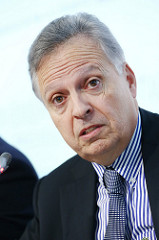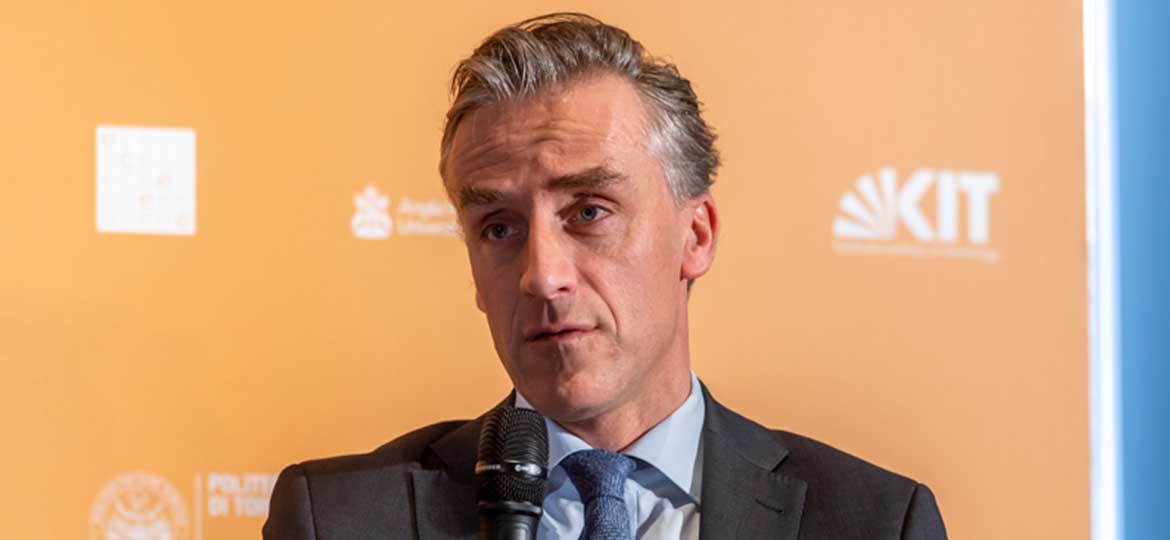
Dominique Ristori is the Director-General for Energy at the European Commission
Accelerating the clean energy transition is a clear priority and a real opportunity that the EU is committed to. Indeed, given that energy is responsible for over 75% of greenhouse gas emissions in Europe, a transition to low-carbon energy solutions is essential for the EU to live up to its Paris Agreement commitments.
The benefits of the clean energy transition go beyond the decarbonisation objective. It is a clear socio-economic opportunity with tangible benefits for EU industries and all Europeans. The EU has already proven that decarbonisation and economic growth can go hand in hand. From 1990 to 2016, concerns about the adverse economic effects of increased regulation were shown to be demonstrably false as greenhouse gas emissions decreased by 22% while the economy grew by 54%. Impressive progress has also been made in the EU regarding energy efficiency and the deployment of renewables, putting the EU on track to achieve its 2020 targets.
The most competitive economies are those investing in future technologies and supporting innovation. Eco-innovation can help create new business opportunities, growth and jobs in Europe and its SME sector, in particular. Today, this sector represents more than 3.4 million jobs in the EU. The renewable energy sector also employs over 1 million people and generates an annual turnover of around €150bn. EU industries are in a good position to lead the way in wind energy, ocean energy, heat pumps and district heating technologies.
However, we should not be complacent as the renewable energy industry is experiencing increased international competition. In this context, the EU needs to accelerate its efforts and consolidate its position as a leader of the clean energy transition.
This is where the Clean Energy for All Europeans package comes into play. This initiative sets the most advanced regulatory framework to date, which is exactly what is needed to modernise our energy system, support clean energies and innovation, and stimulate a strong industrial basis in Europe. Of course, all this must be done while putting consumers at the heart of the energy transition.
The EU has been delivering on its commitments. Already, four of the package’s eight legislative proposals of have entered into force. The principle of ‘energy efficiency first’ has been translated into concrete legal provisions contributing to energy savings across all parts of the economy, including the building sectors. This is especially important, as the building sectors represent 40% of the EU’s energy consumption and 36% of its greenhouse gas emissions.
This package also allows for the accelerated deployment of renewable energies. It sets ambitious targets at the EU level for 2030 of at least 32.5% for energy efficiency and 32% for renewables. These targets go beyond what was initially proposed, thus reflecting recent technological developments, cost-reduction efforts and the importance of committed leadership in the fight against climate change. Both targets include the possibility of a further upward revision in 2023 and are accompanied by a strong governance system. This will ensure that these objectives are met while providing consistency and legal certainty for investors.
Provisional agreements were also reached last December on the new electricity market design, thus concluding the political negotiations on the Clean Energy for All Europeans package and marking a major step towards completing the Energy Union.
Thanks to these new rules, the electricity system will become more resilient and better adapted to the increasing share of renewables. It also puts consumers at the centre, allowing them to become active in the market by producing or selling their own energy. Moreover, market signals will be improved to stimulate investments. Overall, this will support the development of clean energy solutions in Europe in a cost-competitive way.
However, actions need to go beyond the regulatory framework to ensure that European industries stay at the forefront of the clean energy transition. This is why the Commission has launched the Clean Energy Industrial Forum to help EU industries take advantage of the growth opportunities arising from the clean energy transition. These efforts have focused on three key areas with important potential in terms of competitiveness, growth and jobs opportunities: renewable energies, batteries and construction. It looks in particular at trade policies but also the role of research and innovation to improve the EU industries’ competitiveness.
Research and innovation (R&I) are indeed key as the future of Europe’s industry will depend on its ability to continuously adapt. The most advanced construction technologies and materials can already be used to renovate Europe’s building stock. Processes accompanying the decarbonisation – such as digitalisation and decentralisation with smart grids or smart home appliances – are already increasingly empowering energy consumers. However, this trend will only increase in the future if innovative technologies can be further developed to ensure a strong industrial basis in support of the clean energy transition.
R&I is a clear priority and has strong synergies with the ambitious policy framework that the EU is putting in place. Horizon 2020 has been an important source of support for R&I investments into a low-carbon economy. Between 2014 and 2020, over €10bn will be devoted to clean energy R&I priorities outlined in Horizon 2020. The Commission has proposed to increase the budget for R&I in the upcoming 2021 to 2027 period to almost €100bn with Horizon Europe. It has also sought to increase the budget for R&I dedicated to energy, mobility and climate to around €15bn.
This will play a central role in improving the daily lives of European citizens. R&I can foster competitiveness, growth and jobs, along with access to better services suited to their needs and improvement of their comfort and living conditions. It also contributes to the democratisation of the energy system by empowering consumers and enabling them to become central actors of the clean energy transition. Other research areas such as social sciences can also support energy policy by addressing its social impacts. This is particularly important as the EU is fully committed to ensure that the clean energy transition is socially just to all Europeans.

Dominique Ristori is the Director-General for Energy at the European Commission






